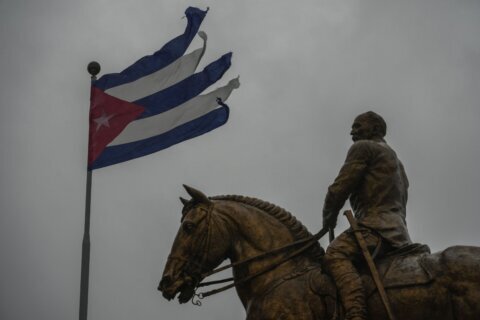The United States is estimated to have extradition treaties with more than 100 countries; therefore, it may seem almost scandalous to hear about nations identified as “non-extradition countries.” However, according to the United Nations, there are currently 193 countries in the world, so from the U.S. perspective, nearly half of the world’s nations could be labeled “non-extradition countries.”
Does that mean that half of the world is made up of lawless havens for criminals? No. It means that the status of a non-extradition country is more complicated than it first seems.
What Are ‘Non-Extradition’ Countries?
Extradition is the process during which the government of one country asks another government to arrest and return an alleged criminal who resides in the second country.
To facilitate this process, countries sign treaties in which each signatory nation promises the other that they will extradite criminals upon request. Therefore, in the U.S., a “non-extradition country” refers to a nation that doesn’t have an extradition treaty with the U.S, said Tai-Heng Cheng, Sidley Austin LLP’s global co-head of international arbitration and trade and co-managing partner of its Singapore office, in an email.
However, some of these “non-extradition” nations may, in fact, have extradition agreements with other countries. And other nations have their own lists of non-extradition countries.
Countries That Are U.S. Non-Extradition Countries
Researchers occasionally compile lists of the U.S.’s non-extradition countries.
Countries with a more adversarial posture to the U.S. are more likely to be non-extradition countries. For example, China, Iran, North Korea and Russia are all non-extradition countries.
Additionally, countries without a U.S.-extradition treaty are more likely to be located in Africa, Asia, the Middle East and the former Soviet Union.
But neither geography nor tension with the U.S. are prerequisites for this status: Vatican City and Samoa are also non-extradition countries.
Why Countries May Refuse to Sign Extradition Treaties
For all the controversy about non-extradition countries, there are substantive and procedural reasons countries may choose not to sign an extradition treaty.
Some countries may refuse to sign these agreements as a matter of foreign policy. Included in this category are nations that believe a foreign government should not be able to prosecute their citizens.
Other nations take a more pragmatic approach, believing their non-extradition status may encourage people to emigrate to their countries — particularly high-net worth individuals, Cheng explained.
On the procedural front, in the modern era, most treaties rely on a principle that extradition is warranted if someone has committed an act that is illegal in both countries. Some countries’ criminal laws are so different that this can make an extradition arrangement impractical, Cheng said.
[READ: When Are Government Officials Legally Immune?]
Why the U.S. May Not Want an Extradition Treaty
The fact that the U.S. doesn’t have an extradition treaty with a country isn’t always due to another country’s refusal to extradite its citizens to the U.S. It’s possible that the U.S. is the country that doesn’t want the extradition treaty.
That can be true even in the case of countries that rely heavily on the U.S. for military or financial support, such as Saudi Arabia and Ukraine, Cheng said.
While this may be initially surprising, “An extradition treaty creates reciprocal extradition obligations, so it may not be the national interest of the United States to enter into treaties with those countries,” he explained.
How Non-Extradition Status May Uphold the Rule of Law
For all of the focus on how non-extradition treaties help lawbreakers escape prosecution, non-extradition status can also relate to a non-extradition country upholding, rather than evading, the rule of law.
Since extradition treaties are reciprocal, the United States doesn’t get to litigate the veracity of another nation’s claim when that country invokes its rights under the treaty.
Therefore, the U.S. may choose not to sign non-extradition treaties with countries that have a record of human rights abuses.
In a January 2024 analysis, researchers concluded that China is more likely to have extradition treaties with economic partners. However, China is less likely to have agreements with countries that are strongly committed to the rule of law. The scholars concluded that these countries’ non-extradition status is at least in part due to their concern that China would use extradition treaties to repatriate — and silence — political dissidents.
Due Process Concerns Also Influence Non-Extradition Status
“In some instances, a country may very legitimately not wish to subject its citizens to extradition to a foreign country whose criminal laws and due process standards are different than the constitutional protections of its citizens in their own country,” Cheng wrote.
For example, the U.S. has extradition treaties with some countries that allow for the prosecution of American citizens, but the U.S. doesn’t have extradition agreements with Afghanistan, Kuwait, Saudi Arabia, Somalia or Vietnam.
Non-Extradition Countries May Still Hold Criminals Accountable
Non-extradition countries can always choose to extradite criminals. These countries just do so on a case-by-case basis, rather than due to the automatic obligations that arise out of a treaty.
They may find also other ways to hold criminals accountable. Non-extradition countries can decide to deport or expel someone due to their wrongdoing. And the countries can always choose to prosecute the criminal in their own courts.
More from U.S. News
What Is the Future of Big Law?
What Does Hiring a Lawyer Cost?
What Are Non-Extradition Countries? originally appeared on usnews.com







